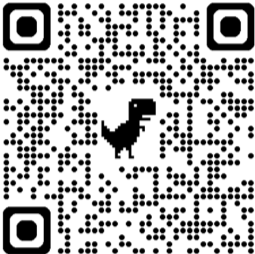Nervous System Diseases and Mental Disorders
Learners complete a crossword puzzle with terms that relate to common diseases of the nervous system and mental disorders.
Create multiple-choice games on Wisc-Online and play them on our Chakalaka mobile app!
But that's not all! Explore educational games created by others. Simply search by category or enter agame code number and dive into a world of learning and fun.
Download the Chakalaka mobile app here:

Topics of this game:
- Major affective disorder with abnormally intense mood swings from a manic state to a severely depressed state
- Loss of nerve function below the cervical region resulting in paralysis of upper and lower extremities and trunk
- Inflammation of brain tissue
- Acute, rapidly progressive syndrome of spinal nerves. Patient's nerves demyelinate, usually starts in legs and moves up the body within 24-72 hours.
- Group of mental disorders in which the person experiences physical symptoms without having an actual underlying cause
- Occurs when the brain is damaged by a sudden disruption in blood flow, AKA: Stroke
- Term used for pain radiating from the spine, through the buttocks and down the leg, caused by compression on the nerve
- Behavioral disorder in which children demonstrate behaviors that are oppositional toward adults (abbrev.)
- Chronic brain disorder characterized by recurrent seizure activity
- Loss of nerve function below the waist and paralysis of the lower trunk and legs
- Inflammation of the membranous coverings of the brain and spinal cord, usually a bacterial infection
- Term used for a ruptured nucleus pulposus through the annular wall of the disk and into the spinal canal
- Collective of blood in the space above the dura
- Hereditary degenerative disease of cerebral cortex & basal ganglia in which progressive atrophy of brain occurs, patient loses musculoskeletal control
- Type of dementia due to reduction in blood flow to the brain from narrowed and stenosed arteries
- Type of disorder characterized by withdrawal & obsessive behavior, noticed in children w/ classic signs: eye-to-eye gaze & resistance to change/touch
- Major psychiatric disturbance, a group of disorders resulting in chronic mental dysfunction that produces varying degrees of mental impairment
- Paralysis occurring on one side of the body, common residual condition from a stroke
- Bruising of cerebral tissue caused by a violent back and forth movement of the head
- Progressive degenerative disease of the brain producing a typical profile of loss of mental and physical functioning, most common cause of dementia
- Incapacitating headaches that may be accompanied by nausea and vomiting, anorexia, and visual disturbances
- Progressive general deterioration of mental functions including perceiving, thinking, and remembering, several different types
- Condition of persistent inattention leading to hyperactivity and impulsivity (abbrev.)
- Disorder of the 7th cranial nerve (facial nerve) that causes sudden onset of weakness/paralysis of the facial muscles
- Loss of speech due to nerve damage, common residual condition from a stroke
- Highly contagious viral infection of the anterior horn cells of the gray matter of the spinal cord, causes selective destruction of the motor neurons
- Progressive, destructive motor neuron disease that results in muscular atrophy, AKA: Lou Gehrig Disease (abbrev.)
- Common drug used to treat seizure activity
- Collection of pus occurring anywhere in the cerebral tissue
- Syndrome that occurs later in life in patient who was infected with poliomyelitis and has residual weakness or paralysis or other residuals
- Temporary episodes of impaired neurological function due to an inadequate blood flow to the brain, AKA: Mini-stroke
- Degeneration of peripheral nerves
- State of extreme worry and agitation; if this state becomes unfocused and occurs suddenly, it may develop into a panic attack
- Extreme pain on one side of the face, pain follows the 5th cranial nerve
- Slowly progressing neurological disorder characterized by the "pill- rolling" tremor, stooped posture, and muffled speech
User comments are currently unavailable. We apologize for the inconvenience and are working to restore this feature as soon as possible.

